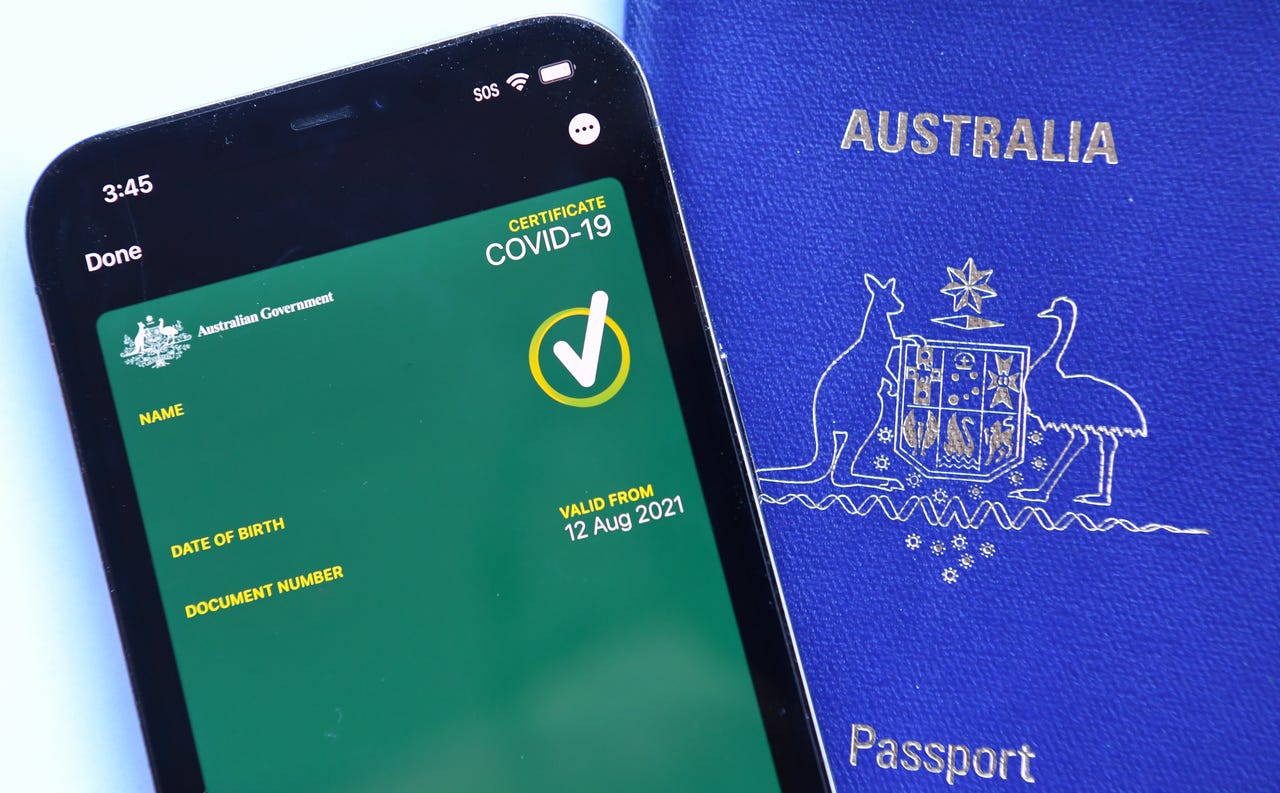































 Image: Getty Images
Image: Getty Images The Labor Party has criticised the federal government's handling of the newly announced Digital Passenger Declaration (DPD), calling for more transparency around the yet-to-be-released platform.
"[Prime Minister Scott] Morrison needs to be clear about what the federal government is paying for, how much it is paying, when it will be delivered, and who will own the capability," Shadow Minister for Multicultural Affairs Andrew Giles said.
"This project is already six months late -- the contract was supposed to be awarded and successful provider announced in March 2021," he claimed.
The DPD is a digital vaccination declaration for people who are travelling to and from Australia that was announced by Home Affairs Minister Karen Andrews yesterday afternoon. The federal government is hoping the DPD will replace physical incoming passenger cards and the COVID-19 Australian Travel Declaration web forms.
To be built by Accenture, federal government has yet to provide details about when the DPD will be complete and how much Accenture will be paid to build the platform.
Giles noted that the DPD was also part of the federal government's AU$75 million Permission Capability project announced in October last year. The project arose after the government shelved its controversial AU$92 million plan to privatise Australia's visa processing system, which was put on hold due to widespread criticism.
In calling for more transparency, Giles took the opportunity to sledge the federal government's COVIDSafe app, which Morrison touted as being a digital sunscreen against COVID-19 when it was first released.
"Morrison cannot repeat the COVIDSafe app failure in early 2020, which failed to deliver a product fit for purpose," Giles said.
"The Morrison-Joyce Government has now wasted almost AU$170 million attempting to privatise visa processing -- twice."
Since going live, the COVIDSafe app has cost Australians AU$100,000 per month to keep running, but as of July, certain states like NSW have only found 17 cases from using the app.
At the time of writing, Australia has a total of 75,324 COVID-19 cases, 18,437 active cases, and almost 1,100 deaths.
On the same day, the federal government announced it is seeking consultation on how it should go about implementing technology to streamline the execution of statutory declarations and deeds.
Australia's Deregulation Taskforce, an arm within the federal Treasury department, is currently considering various potential legislative amendments surrounding document execution.
These potential amendments include allowing digital alternatives to paper?based document execution, providing common definitions and standards to reduce confusion and simplify processes surrounding document execution, and allowing digital identity verification in place of witnessing.
The taskforce noted, however, that implementation of these options could potentially make it harder for people with low English literacy, disability, health issues, or old age to execute documents.
According to a government-commissioned survey, small to medium-sized businesses in Australia complete around 4.5 million deeds and over 3.8 million statutory declarations every year.
As part of the consultation, the taskforce is asking stakeholders to share their experience and suggestions for how to modernise document execution.
The Deregulation Taskforce will be accepting submissions until 8 October 2021.
The taskforce was created in July 2019 as part of the federal government's efforts to reduce regulatory barriers and attempt to spur job creation through a deregulation agenda.
As part of that agenda, government has so far implemented temporary measures such as allowing companies to perform various tasks electronically. These tasks include signing and executing documents, holding meetings, providing notices related to meetings, and keeping minutes. The temporary measures will be in force until the end of March 2022.
 Tags chauds:
affaires
Transformation digitale
Tags chauds:
affaires
Transformation digitale